Samsung UE65KS8000 buying guide
Samsung's UE65KS8000 packs 4K HDR into a flat, great-looking package
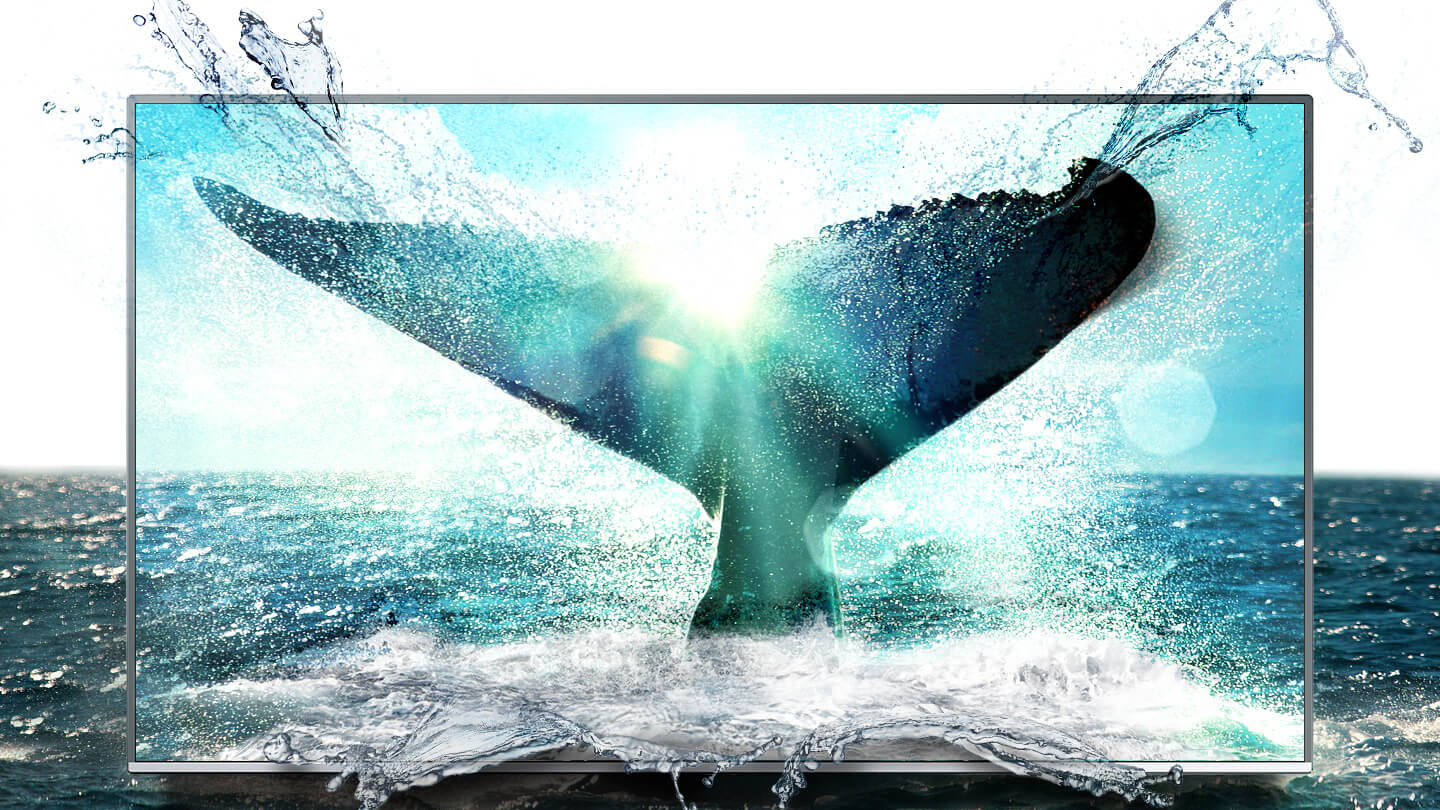
Questions about the Samsung UE65KS8000? You’ve come to the right place.
First thing’s first: The UE65KS8000 continues Samsung’s dedicated pursuit of the ultimate HDR experience with its high brightness and powerful colour technologies. What that means is while there are one or two stumbles along the way, overall no other TV range around today offers the same level of HDR excitement for so little cash.
Samsung’s latest 65-inch UE65KS8000 steps away from the chunky design of many of its 2015 TVs in favour of a slimmer, more minimalist look. The narrowness of the flat screen frame is echoed by a slender rear that stands in stark and, for me, a welcome contrast to the extended depth created by Samsung’s curved TVs. The addition of a gleaming metallic trim and centrally mounted polished aluminium desktop stand creates a really premium feel, too.
So, what else can Samsung’s latest do? Read on to find out.
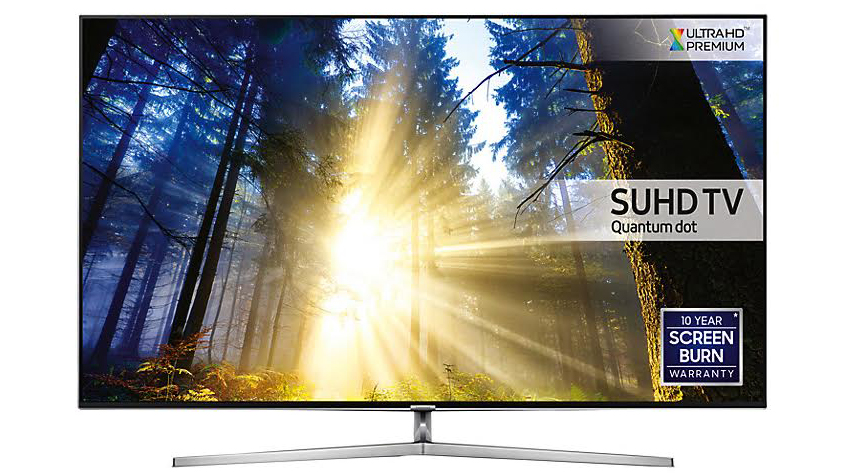
What is SUHD?
Why you can trust TechRadar
The UE65KS8000 is one of Samsung’s so-called SUHD TVs. These UHD-resolution TVs meet the specifications recommended under the AV industry’s Ultra HD Premium ‘badge’ as being necessary to deliver a strong performance with high dynamic range (HDR) technology. HDR, in case you’re not familiar with it, adds an expanded light range and wider colour spectrum to pictures, truly transforming the way things look.
Heading up the UE65KS8000’s key specifications are an HDR-friendly brightness of 1000 nits (50-100% more than you get with other TVs at the same price level), and colours that cover most of the expanded range associated with the world of digital cinema projection.The screen uses edge LED lighting, but local dimming ensures a strong contrast performance by allowing different sections of the LEDs to output simultaneously different light levels to those of their neighbours.
Unfortunately, however, UE65KS8000 doesn’t support 3D – Samsung has taken the decision to ditch 3D across its entire TV range this year. But it does carry a powerful motion processing system, a Game picture preset which reduces input lag for gamers to less than 30ms in both HDR and standard dynamic range mode, and even an ‘upscaling’ option that does a surprisingly decent job of converting standard dynamic range sources to HDR.
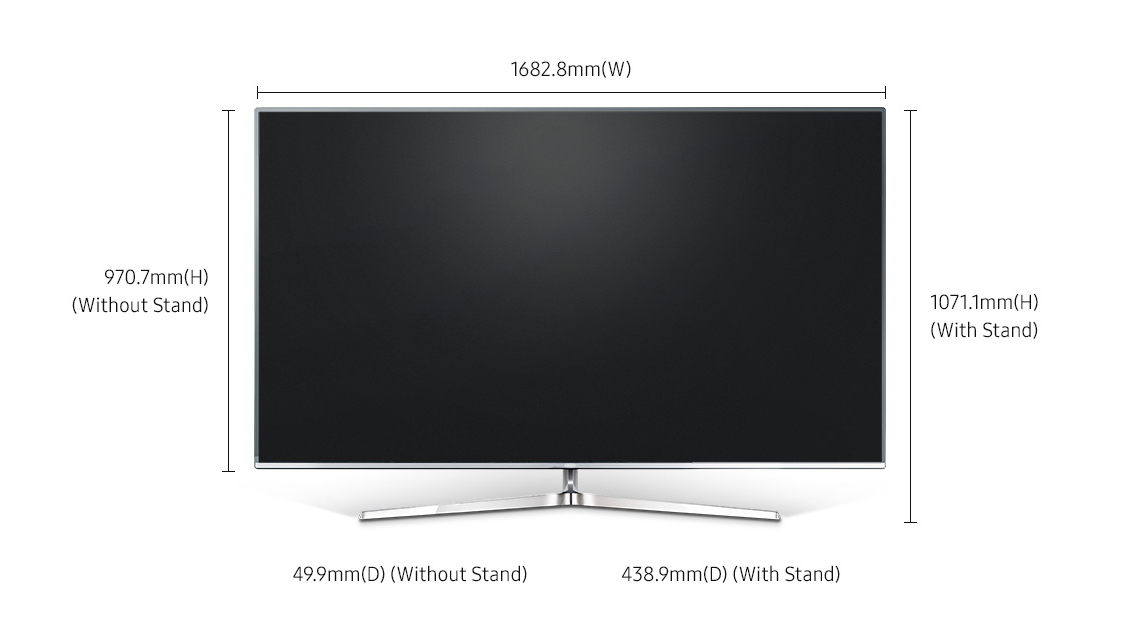
Is it a smart TV?
Yes! Samsung’s latest Tizen-based Smart TVs make it much easier than their predecessors did to get quickly to interesting or favourite content. This is because it introduces a new second deck of contextual content link icons above the original deck introduced in 2015.
Available apps are headlined by 4K and HDR versions of Amazon and Netflix; YouTube; Playstation Now; the BBC iPlayer; and the ITV Hub. At the time of writing neither the All4 or My5 catch up services were available, though.
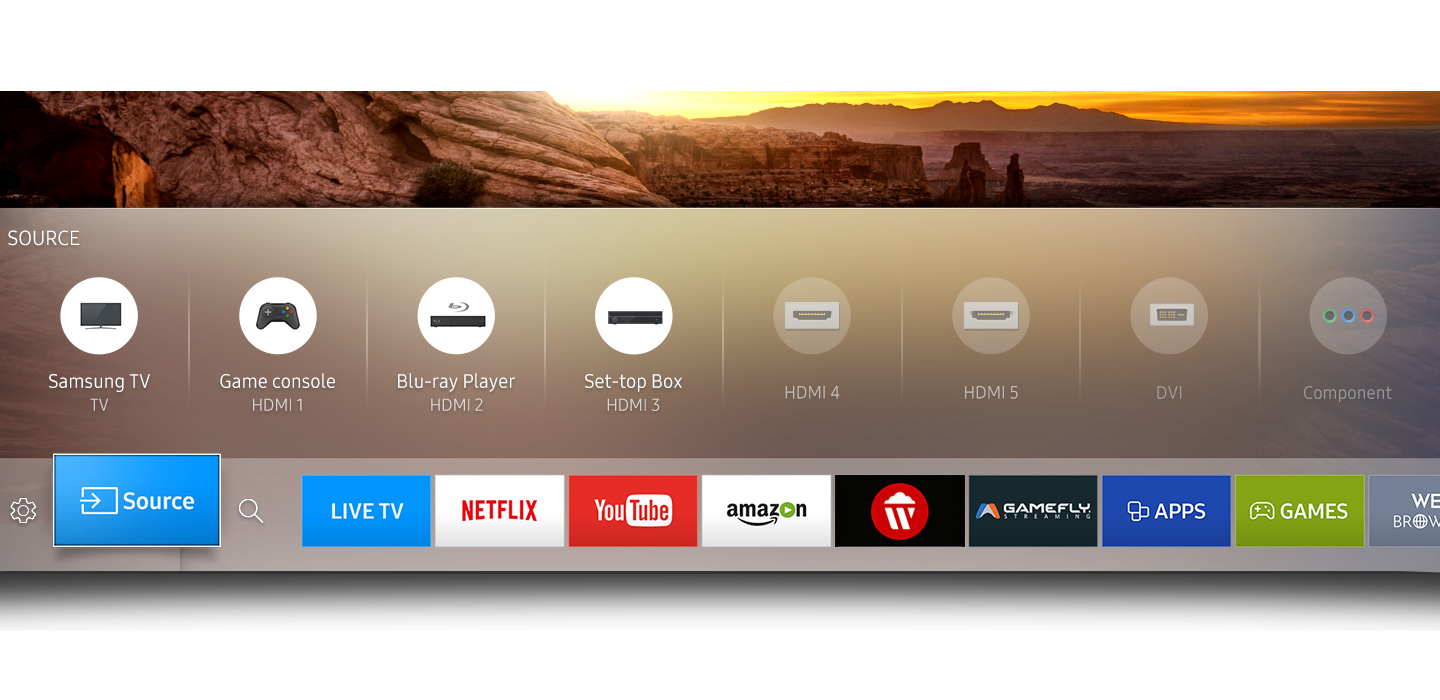
Vital statistics
Screen sizes available: 49-inch, 55-inch, 65-inch, 75-inch | Tuner: Freeview HD | 4K: Yes | HDR: Yes (HDR10) | Panel technology: LCD with edge LED lighting | Smart TV: Yes, Tizen | Curved: No | Dimensions: 1094 x 636 x 43mm (W x H x D) | 3D: No | Inputs: Four HDMIs, three USBs, optical digital audio output, Wi-Fi, Ethernet port, Tuner input
How does it look?
While other TVs in the UE65KS8000’s price bracket do 4K HDR playback, none do it with as much outright spectacle. It’s becoming increasingly clear that really convincing HDR images need brightness to (literally!) shine, and the UE65KS8000 has that in spades. Its colours are gorgeously expressive and vibrant too, especially with all that brightness to drive them out into your living room.
Also to Samsung’s credit is the way all this brightness is delivered alongside one of the best black level performances we’ve seen from an edge-lit LCD TVs.
The UE65KS8000 also gets the maximum impact from its native UHD resolution thanks to a gorgeous combination of sharpness and detail, and despite its extremely trim design it manages to partner its pictures with a robust, clear, engaging audio performance.
There are a trio of distracting issues you should be aware of. Dark HDR scenes can reveal subtle vertical light bars around really bright objects when they appear against dark backdrops thanks to the way the local dimming works. Areas of sky in HDR footage sometimes show a little striping noise. And finally the TV loses contrast and colour if viewed from a viewing angle of more than 30 degrees or so.
Overall, though, the UE65KS8000 is a strong TV for its money - especially if you want to embrace the full spectacle of HDR.
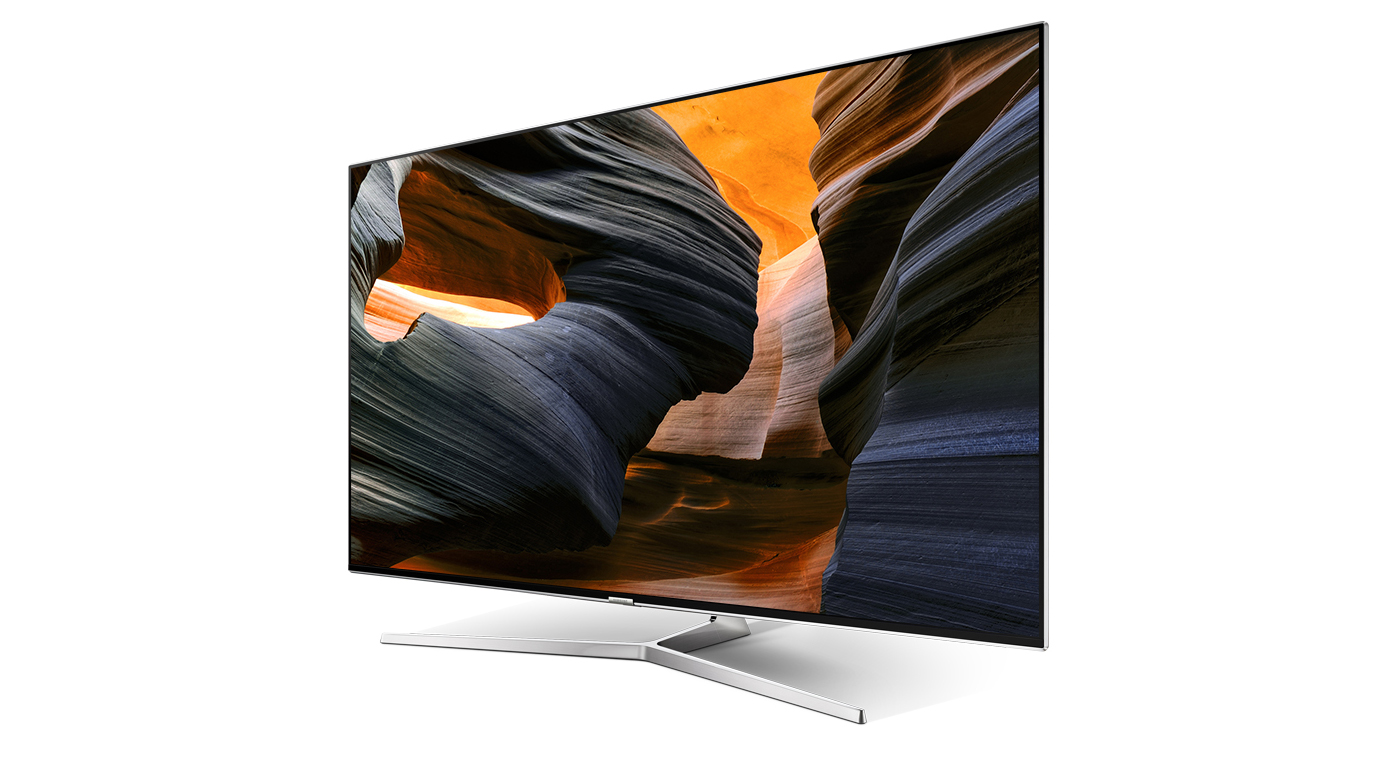
What other TVs should you look at?
The Panasonic TX-58DX802 gives you a more subdued but impeccably nuanced 4K HDR picture in a a slightly bigger 58-inch screen for £1,290. This set also boasts a distinctive ‘easel-style’ design, and ships with an external soundbar as standard.
If you can find an extra £500 you could consider the Panasonic TX-65DX902, which swaps the edge LED lighting in the Samsung model for a contrast-friendly direct LED lighting system. This delivers an even more dynamic picture than the UE65KS8000, but can suffer with small but quite defined areas of backlight haloing.
Finally, if you’d like one of Samsung’s curved TVs then you’re looking at the 65-inch version of the KS7500 or, if you’re feeling flush, the high-performance UE65KS9000.
How much does the Samsung UE65KS8000 cost?
- You can buy it on Samsung's online storefront for £1,999
- You can also find it for £1,999 at Curry's, if you'd rather shop there
- Finally, you can find the Samsung UE65KS8000 for £1,999 at John Lewis
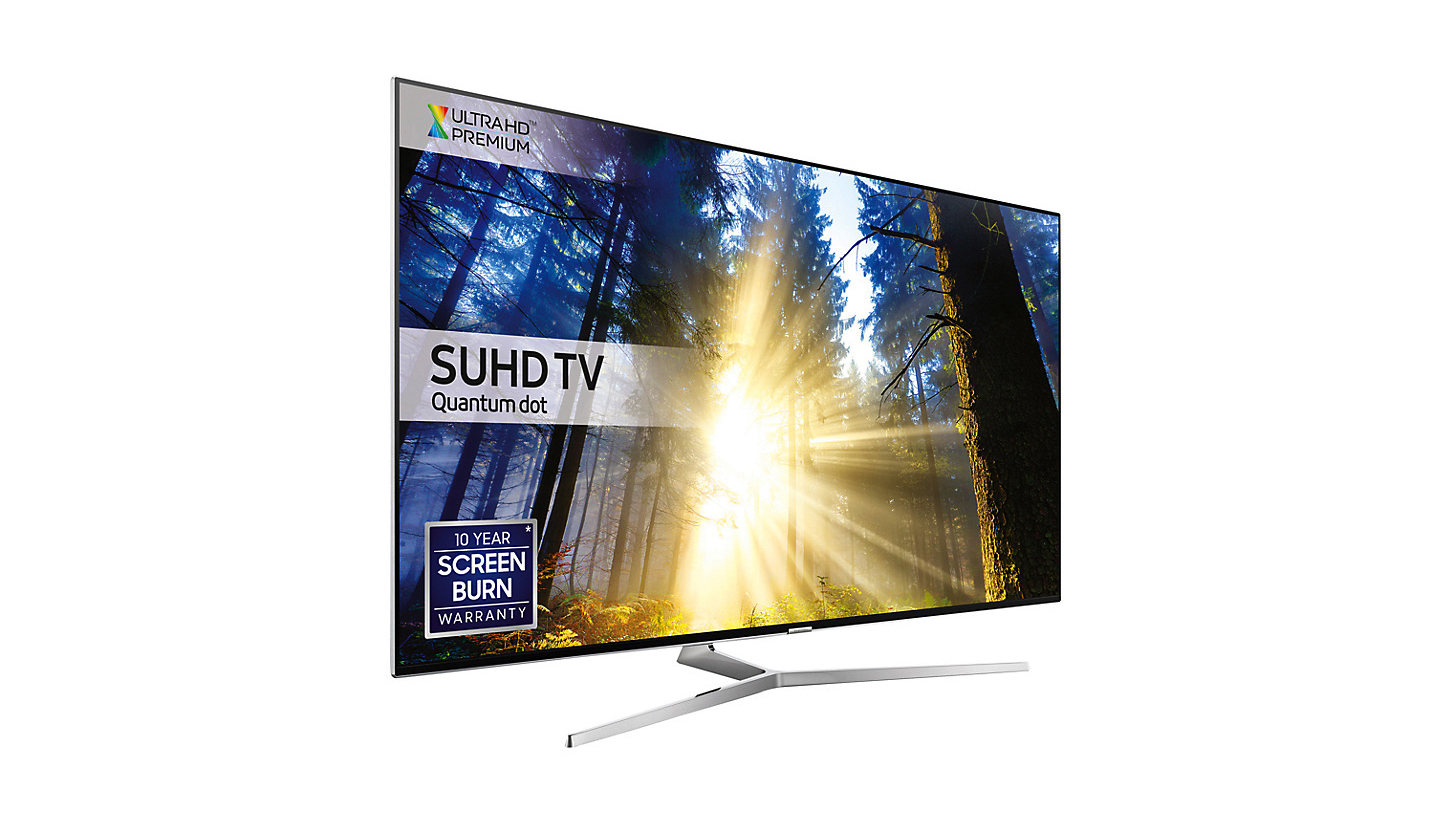
So, should you buy the UE65KS8000?
The UE65KS8000 sets your pulse racing immediately with its trim, glamorous design, and it’s got the tech to back these cutting edge looks up in the shape of a killer combination of a Tizen-driven smart TV system, a native UHD resolution and high dynamic range playback.
Its pictures deliver on this HDR potential with levels of brightness and colour you just don’t get anywhere else for the same money - though don’t think from this that it doesn’t also know its way around the non-HDR images, it’s a star performer with standard dynamic range, too.
There's a price to pay for such dynamic pictures in the appearance of some backlight clouding flaws during dark HDR scenes. You can sometimes see some subtle colour striping in skies during some Ultra HD Blu-rays. In the end, though, the pros far outweigh the cons.
Sign up for breaking news, reviews, opinion, top tech deals, and more.

John has been writing about home entertainment technology for more than two decades - an especially impressive feat considering he still claims to only be 35 years old (yeah, right). In that time he’s reviewed hundreds if not thousands of TVs, projectors and speakers, and spent frankly far too long sitting by himself in a dark room.